News
Nestlé pledges $1.29B to support regenerative agriculture
24 Sep 2021To further amplify its commitments to sustainability, Nestlé recently announced it is committing 1.2 billion Swiss francs ($1.29 billion) to develop regenerative agricultural practices within its supply chain.
Through encouraging practices that enhance biodiversity, soil conservation, regeneration of water cycles and integration of livestock, Nestlé said it will work with its network of more than 500,000 farmers and 150,000 suppliers to integrate these practices into production.
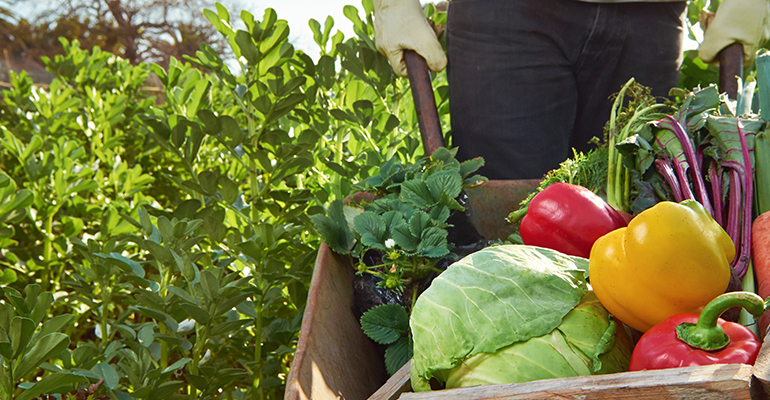
"These outcomes form the foundation of sustainable food production and, crucially, also contribute to achieving our ambitious climate targets," Nestlé Chairman Paul Bulcke said in a statement. The Swiss CPG titan said taking measures to improve its agricultural practices will be an important part of meeting its goal to halve its emissions by 2030 and achieve net-zero by 2050. Farming accounts for nearly two-thirds of Nestlé's total emissions, the company said.
However, this sustainability initiative does not exist in a vacuum at Nestlé. The multinational is also striving to reduce its overall environmental footprint by working to convert its packaging to more sustainable alternatives, and it has vowed to invest up to $2 billion in this effort. The company has also said that to achieve its net-zero by 2050 goal, it will spend $3.6 billion over the next five years.
However, by integrating regenerative agriculture into its business model, the Swiss company is also positioning itself to reap the advantages of this type of farming. In a statement, the company said regenerative techniques provide the opportunity for farmers to increase yields – a direct benefit to Nestlé when sourcing ingredients for its supply chain. This is particularly true for ingredients like coffee and coca that are becoming pricier as climate change negatively pressures their natural growing environments.
To combat this trend, the world's largest food company noted that in conjunction with supporting farmers to assist them with investments geared toward helping them convert to more sustainable practices and gain access to the required equipment, Nestlé is investing in R&D to develop higher-yielding coffee and cocoa varieties that also have a lower environmental impact.
All of this comes at a cost, but it is one that the Swiss conglomerate says it is willing to shoulder. "In the spirit of enabling a just transition it is vital that we support farmers around the world that take on the risks and costs associated with the move towards regenerative agriculture," CEO Mark Schneider said in a statement.
This announcement from Nestlé comes just prior to the convocation of the U.N. Food Systems Summit in New York, where participants will look to help combat climate change through creating sustainable food systems. Nestlé was one of the first companies to share its climate plan in December 2020 as a part of the U.N.’s Business Ambition for 1.5°C pledge.
Related news
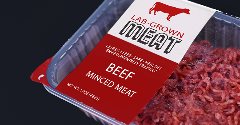
Israel approves Aleph Farms’ cell-cultured beef in world first
1 Feb 2024
Israel has granted the first regulatory approval for the commercial sale of cultivated beef, joining the US and Singapore in officially recognising cultivated meat’s role towards protein diversification.
Read more
Fazer and Solar Foods launch snack bar made with air protein
30 Jan 2024
Finnish food manufacturer Fazer has teamed up with foodtech startup Solar Foods to launch a limited-edition snack bar in Singapore made using a novel, carbon-fed microbial protein.
Read more
Big brands invest in precision fermentation-derived palm oil
25 Jan 2024
Although still not approved for food applications, big brands such as Unilever and Doehler are investing in precision fermentation-derived palm oil in a bid to reduce the environmental impact associated with this conventional palm oil.
Read more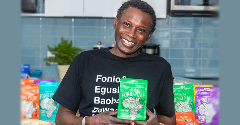
Supergrain fonio expands its reach in US market
11 Jan 2024
More US consumers will find nutritious, climate-smart grain fonio in supermarkets thanks to a new distribution structure for the import’s most prominent commercial brand, Yolélé.
Read more
Sustainability meets innovation at Fi Europe 2023's Sustainability Ingredients Zone
9 Jan 2024
Fi Europe’s Sustainable Ingredients Zone showcases ingredients forging a path toward a greener future. Three innovators are redefining what sustainability within the food and beverage industry means, with upcycled products, regenerative agriculture, an...
Read more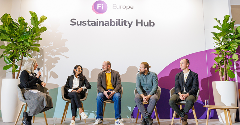
Supermarkets innovate with private label plant-based ranges
9 Jan 2024
Plant-based product ranges are an important part of retailers’ private label innovation efforts – and represent an important way for supermarkets to reduce their environmental impact.
Read more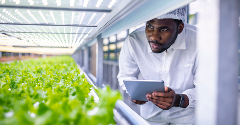
The UK prepares to open food security science centre
2 Jan 2024
Amid global food insecurity, the UK government says it is committed to producing crops resilient to climate change and addressing hunger and malnutrition with a food security science centre.
Read more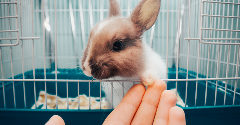
Novel food safety platform could eliminate animal testing
21 Dec 2023
The European Food Safety Authority (EFSA) has introduced a new platform that has the potential to eliminate animal testing in the food industry.
Read more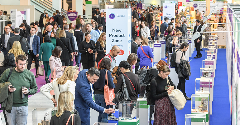
Water-conscious consumers, upcycled food, and tech-driven sustainability: Highlights from Fi Europe, part 2
14 Dec 2023
With climate change becoming a tangible reality, consumers’ environmental concerns are changing. At Fi Europe, market analysts revealed how people are now interested in everyday issues like water shortages and tech-driven solutions such as GM drought-r...
Read more
The food industry’s single-use packaging problem
12 Dec 2023
The food industry’s reliance on single-use packaging is a sustainability “sticking point” with viable alternatives not widely available – but new EU rules mean food businesses will remain responsible for the collection and disposal of the packaging the...
Read more